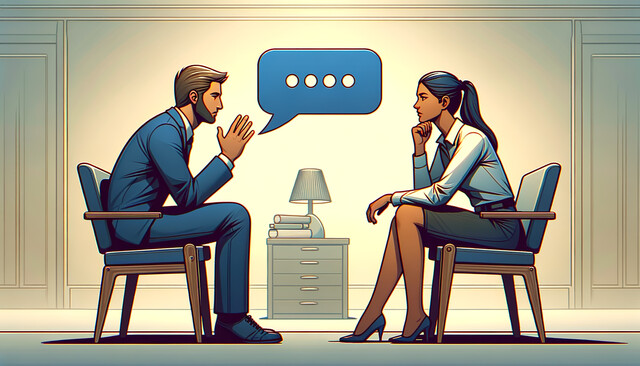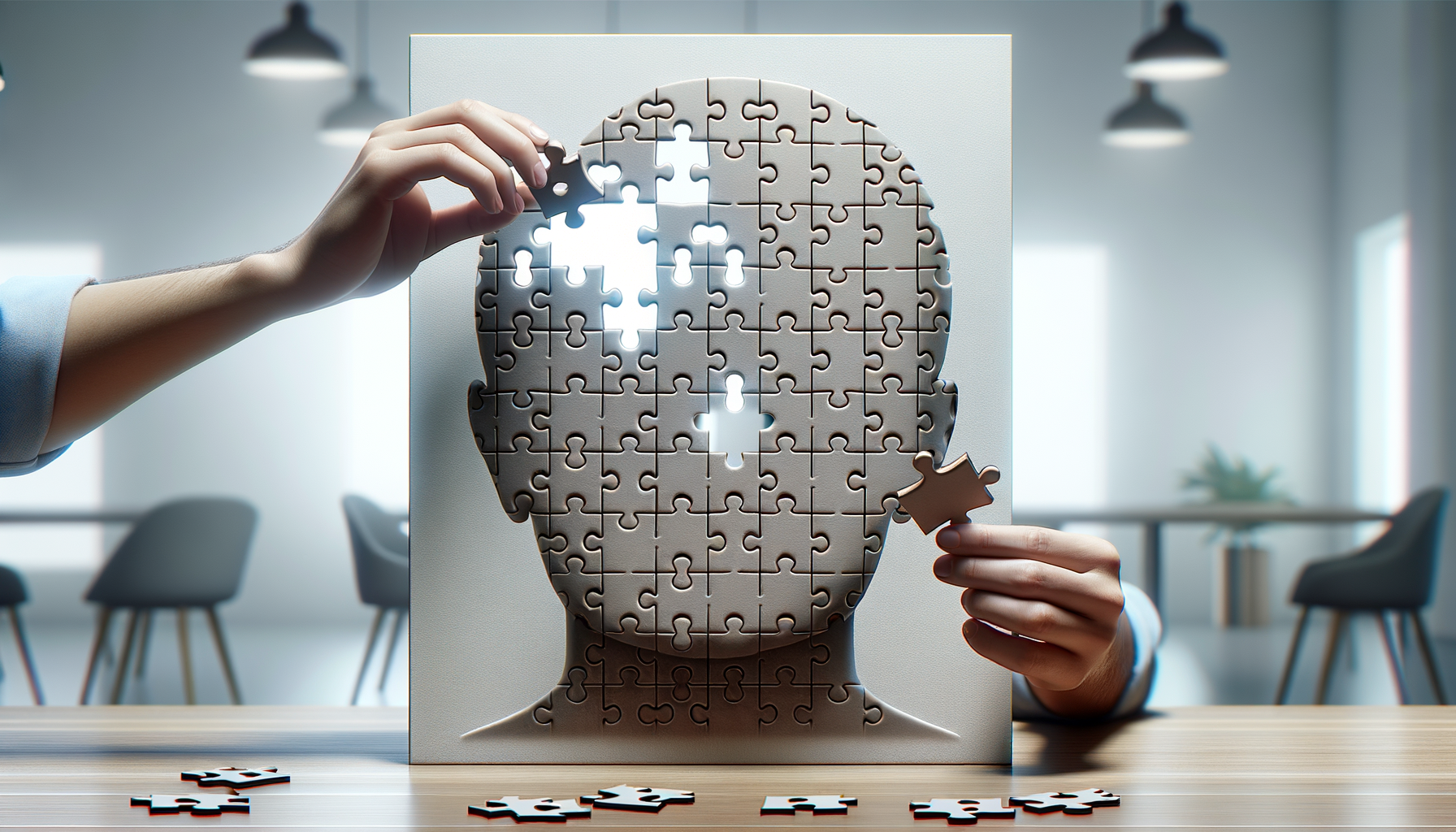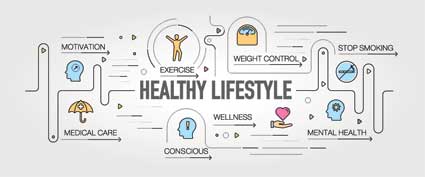Just as other areas of the body can experience problems that keep them from being healthy or working well, so too can the mind. If someone suffers from a personality disorder, there is a problem with the mind that affects the way the person thinks or acts. It is important in studying personality development to have an understanding of these conditions, what causes them, and what can be done about them.
Personality Disorders Defined
According to the Mayo Clinic, personality disorders are a type of mental illness that adversely affects the way one thinks and perceives situations. There are many different types of personality disorders, but they are often self-destructive in nature. They can impair a person's ability to relate to others, leave the house, etc.
The symptoms of each personality disorder vary. People with some disorders have odd or dramatic behavior, while others may be fearful and anxious and still others may display very emotional behavior.
Here is a rundown of some of the most commonly discussed personality disorders:
Antisocial: Those who suffer from this serious condition do not follow the rules and may act out, being impulsive, aggressive, and even violent. They do not care for other people or have remorse for the hurtful things they do. They are especially at an increased risk for substance abuse.
Borderline: People who are in this category have a difficult time with relationships because their behavior is unstable. Their mood may change easily and they are unpredictable. They are usually at an extreme end of the spectrum in thinking things are either completely great or absolutely awful.
Narcissistic: These are people that have an exaggerated image of their self-worth and importance. They are also constantly seeking attention. They are prone to going back and forth from being insecure and self-admiring.
Schizoid: These people are distant, cold, and withdrawn. They do not usually interact with others, as they would rather remain absorbed with their own thoughts and actions.
Paranoid: This type of person does not trust anyone. He or she automatically believes that people are out to do harm. Such people also are secretive and prone to angry outbursts.
Avoidant: This disorder leads a person to avoid getting involved with things out of fear that he or she will be laughed at, not liked, etc. When the person receives disapproval from others, she or he is very hurt. These people usually have close relationships only with those in their family circle.
Dependent: This disorder is found more often in females than males. It involves someone being extremely dependent on others, even to the point of needing others to make the person's decisions. Such people have very low self-confidence and feel helpless if they are alone.
Obsessive-compulsive. These people strive to be perfect, yet they are not usually satisfied, so they continue to take on more responsibility. They are very orderly and methodical, yet not flexible at all, making it difficult for them to get along with others.
Interesting Tidbits
If you are looking for a movie to watch and are interested in learning more about mental illness, there is a long list of movies that combine the two.
According to the American Psychological Association, personality disorders are often caused by such things as genetics and abuse. The association cites research indicating disorders may be a result of parenting, genetics, and peer influences. These contributions are explained by the following:
- Genetics: Researchers have been looking at genetic links to obsessive-compulsive disorder, as well as aggression, fear, and anxiety.
- Childhood trauma: There is research to support the idea that childhood traumas are linked to personality disorders. Researchers especially believe that childhood sexual trauma is linked to borderline personality disorder.
- Verbal abuse: Children who are verbally abused are believed to have a higher likelihood of developing narcissistic, obsessive-compulsive, paranoid, and borderline personality behaviors.
- Peers: One's peers can be quite influential in helping a child avoid personality disorders. Researchers believe if a child has at least one strong relationship with a peer, it can help the child avoid such conditions.
- High reactivity: Researchers believe that children who are highly reactive or sensitive to texture, noise, and light may be more prone to personality disorders and timidity. However, the information on this is still being investigated and the link is believed to be quite small at this point.
Personality Disorder Treatment
Those with personality disorders can get better with treatment. The first step is identifying the symptoms and getting the person to seek the help of a doctor to get tested. If people are diagnosed as having one of these conditions, there are options available. Those who follow these options can have a greatly improved quality of life.
Treatment options vary and will need to be discussed with a doctor to select the best one for that person. The treatment may include individual, family, or group therapy. Symptoms can also sometimes be addressed with medications. The more people know about personality disorders and are able to identify them, the more people can be helped through means of treatment and enjoy life more, as well as making it more enjoyable for those around them.
Did You Know?
Opposite Attract, Or Do They?
While some people believe that opposites attract, others do not. In certain situations, when it comes to love relationships and finding a mate, opposites do attract. Let us say someone is an introvert. The introvert may like the idea of being with an extrovert because that complements the more withdrawn person's personality style. One person would likely be leading the conversation and making it easier to attend functions, while the other one could hang back and not feel the pressure to be so outgoing.
However, on the opposite end, opposites also can drive some people right out of a relationship. Let us say that two Type A people get together in a relationship. We know that Type A people are very competitive, so they could spend a lot of time in their relationship competing against each other, which could lead to problems in the relationship.
There are many other possible scenarios where opposites would attract nicely to complement each other's personality traits, while doing just the opposite in other relationships. For example, if one person in a relationship loves to spend money and spends a lot and the other one is more thrifty, trying to save for retirement, it could create a tense situation that leads to many arguments and possibly even an end to the relationship.
Therefore, the jury is still out when it comes to whether or not opposites attract in finding a mate. There is no definitive proof to back up the age-old saying. Sometimes it appears as though opposites attract and other times it looks like it does not work at all. What is important in relationships is that each person is getting what she or he needs. While "need" may vary from person to person, if those needs are being met by the other person, it is likely that both parties will be happy. Even if someone has the opposite or same personality as his or her mate, if personal needs are not being met, there is a good chance the relationship will suffer.
Those needs in a relationship can include so many different things, and success depends on what one finds to be important. It may be money, security, attention, affection, sex, or any number of other things. Being in a relationship with someone that has an opposite personality will likely mean you will be making many compromises. Over time, this can wear a person down, and people may find it annoying to always compromise. Those opposite features they first found exciting may become irritating.
The Team Scene
When it comes to having opposite personalities working together on one team, the outcome is similar to that of love relationships involving opposites. There is no way to know for sure if it will enhance the team or weaken it.
When you have a team of people work together, whether it is in the office or on the basketball court, there will always be challenges. Different people bring with them different personalities. When you get those opposite personalities working under one roof, they may complement each other, or they may drive each other to the brink.
For example, imagine that you have a team of people that work together and someone is an extrovert and another is an introvert. You will likely have no problem getting at least one person to lead the company presentation. However, what happens if you get a room full of introverts together? Who will want to lead the company presentation? In this case, opposite personalities complement each other and fill needed roles.
Working It Out
In the end, if you can choose a mate that complements your personality traits or put together a team of people that do the same, the success rate will be higher. If you are putting together a team to work on a project, being able to put together people whose strengths complement other team members' weaknesses can help create a successful and efficient team.
If you are in charge of putting together a team, such as in human resources, keep in mind that there are tools you can use. The tools that are available online provide personality tests for everyone to take and information on how to make selections that will complement everyone's weaknesses. You can find companies that offer this service online by doing a quick Google search for "team personality testing."
What to Do
Whether you are looking for love or someone to hire at the office, do not automatically disregard someone because of her or his personality type or one particular trait. You may find that it complements your personality style, so it is worth considering and trying out. In the end, opposites may or may not attract. Only experience and time can tell.
What Is Personal Growth?
Personal growth is all self-improvement. It is about you taking stock of those things that you would like to change or improve and then working to get there. As you succeed in making those changes, you will experience personal growth.
In order to grow as a person, we must first identify our shortcomings or weaknesses. This may be one of the hardest steps for some people because it requires you to be honest about the areas in which you really need to make some improvements. Aiming for personal growth means you cannot hide behind those weaknesses or make excuses for them. It means that you are ready and willing to be honest about what they are and do the work to make the changes.
One of the most important things in finding success in our lives is identifying what is truly important to us. In order to strive for personal growth you will need to a) assess your personal weaknesses and areas that need improving; and b) identify those things that are absolutely important and essential for creating a happy and healthy life.
Once you do that, you will have a road map of where you want to go. Then you just need to take the steps necessary to get there.
Ways to Work on Personal Growth
After reading over the personalitypage.com information, based on your personality type, you will have a good idea of the areas you may need to focus on. As you read that information, it is hard to not see yourself in the information and be able to easily identify what you need to work on, but just how do you get there? There are quite a few things you can do to start working on personal growth. Here's a list of some of those things:
Read books. There are many self-help and personal growth books on the market. Stop by the library or local bookstore and browse the appropriate section to find one or two that seem to speak to you and sound like what you need. You can also ask around for some book recommendations.
Read blogs. There are some great blogs that focus on personal growth. Getting those weekly articles can help keep you focused on your goals and learn how to be successful at achieving them.
Journal. Many people keep journals, and it has been proven to be an asset in helping to reach goals, relieve stress, and achieve personal growth. You do not need anything fancy; just pick up a notebook of some sort or do it on the computer. Each day, take the time to write. You can write about your day, your goals that day, what you are thankful for, or anything else you feel you need to get down on paper. You would be amazed at how much better you feel and more clearly you think after you journal about life.
Set goals. This is a big step in the right direction. Setting goals is the first step in achieving them. However, many people have difficulty setting goals and then seeing them through. How do you go about setting and achieving, goals? Here are some things you can do to be more successful in achieving your goals:
- For starters, you have to have a clear picture of your goals. Simply saying "to be happy" is not an attainable goal in and of itself. You have to decide what will make you happy and have definitive goals and measurements that can get you there, such as get a higher paying job, move to a new neighborhood, etc.. Keep in mind that your goal has to be something that you actually have control over. It cannot be something that you wish for and cannot actually make happen.
- Next, you need to set a time frame for achieving the goal. Do you want to achieve it in three months, six months, or a year?
- Decide what you need to do in order to reach the goals. Be specific. Do you need to make more money, lose weight, finish school, etc.?
- Hold yourself accountable. You will need to take stock in your progress, being honest with yourself, to see the results of your efforts. You may find you need to get yourself back on track, that you are doing well, or you need or want to make adjustments to your goals and methods for reaching them.






























